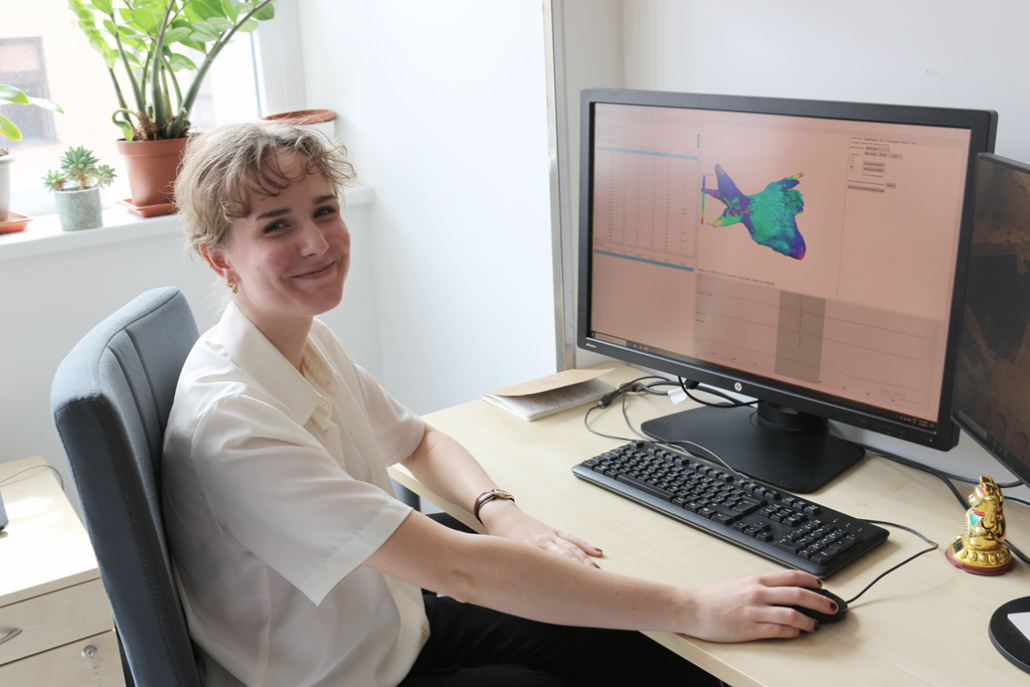“Having access to other people’s experiences is invaluable,” says Aneta, grateful for her internship at the ICRC.
Aneta completed the ICRC Academy seminar in the fall of 2024 and successfully joined the Interventional Cardiac Electrophysiology team in the spring of this year. Her internship focuses on research into atrial fibrillation and gaining a deeper understanding of this complex condition, with the goal of improving the prediction of its recurrence.

The pilot study that Aneta is working on as part of her internship at ICRC aims to determine whether there is a relationship between the mechanical function and the electrical activity of the atria.
“We’re exploring a potential link between echocardiographic measurements of left atrial pump function and its electro-anatomical map, which is obtained invasively during an electrophysiological procedure,” the intern explains.
In addition to standard statistical analysis, the researchers plan to integrate AI models to simplify complex data and uncover new relationships that would be difficult to identify using traditional methods. Finding such correlations could allow for more accurate risk stratification of atrial fibrillation recurrence in patients. This would mark a step toward more personalized medicine, enabling physicians to offer more effective, individualized treatment.
“What I enjoy most about my internship at ICRC is being able to work with real data and clearly visualize what each row actually represents,” says Aneta. “One time, my supervisor even showed me behind the scenes of the electrophysiology lab, so I could see firsthand how the data is collected. I also really appreciate that I get to apply the knowledge I learned at university — it’s great to see how theory is used in practice.”
Aneta’s mentor is Ing. Jakub Hejč, Ph.D., who actively supports the young scientist and shares his experience with her.
“I really value that, because having access to someone else’s experience is invaluable — and these insights can be incredibly helpful when making decisions about my future career path,” Aneta explains.
“On my very first day, I learned how to structure my work efficiently to save time later on. I’m also gaining insight into how things work in the academic and research environment, which is extremely valuable for me.”
Aneta’s internship, facilitated by the ICRC Academy, is designed to be compatible with university studies and other activities. She currently joins the research team once a week.
“I mostly work independently on my assigned tasks. But when I get stuck, I can easily ask my supervisor, who sits right next to me and is always willing to help,” she adds.
“As for the work itself, I combine data extraction from a software platform that visualizes electro-anatomical maps with statistical analysis in Python. Right now, I’m starting to implement AI models to help uncover hidden patterns.”
The ICRC Academy, part of the International Clinical Research Center (ICRC), has been running for over ten years. Its mission is to motivate students to engage in science and research. Since its inception, more than 3,000 students have participated in its programs, and over 100 have secured internships with one of the ICRC research teams.
In addition to regular weekend seminars — aimed at undergraduate and even high school students — participants gain hands-on insight into clinical research, attend engaging lectures and workshops, and work in teams to prepare a professional scientific article. At the end of the seminar, teams present their work before a jury of ICRC scientists.
Many students have found the experience inspiring and career-shaping, helping them take their first steps toward successful careers in the Czech Republic or abroad.



